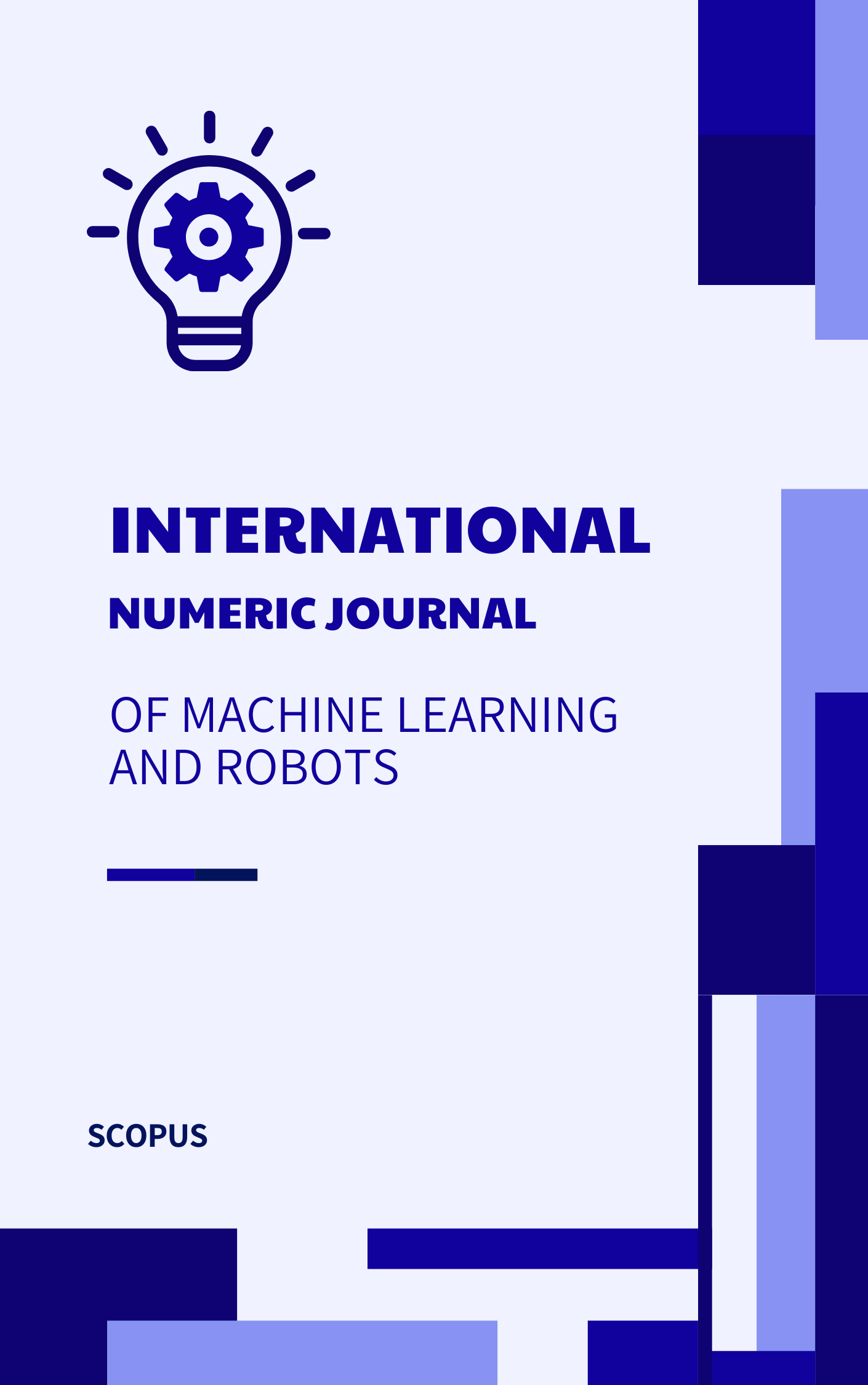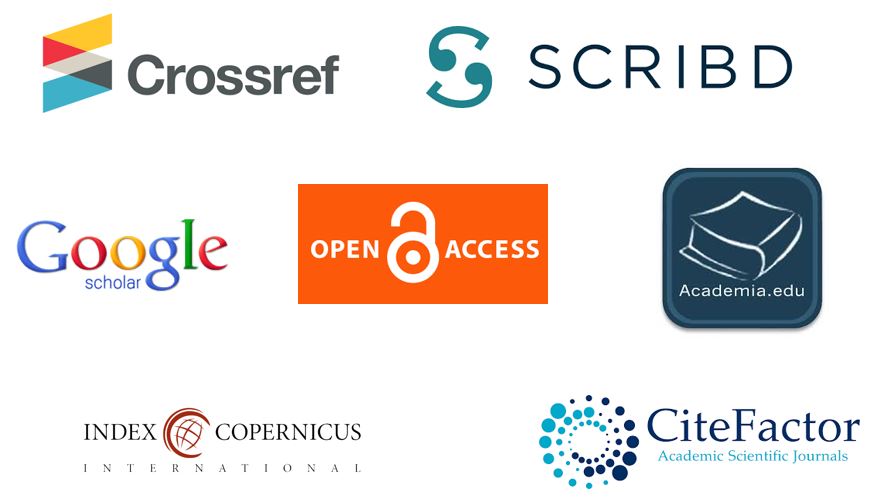Revolutionizing Enterprise Resource Planning (ERP) Systems through Artificial Intelligence
Abstract
This research investigates the transformative impact of Artificial Intelligence (AI) integration within Enterprise Resource Planning (ERP) systems, aiming to enhance organizational efficiency and innovation. Through a comprehensive survey encompassing 300 enterprises, this study unveils a substantial correlation between AI-infused ERP systems and operational efficiency gains. Results indicate an average 27% reduction in task processing times and a notable 35% enhancement in accuracy across business functions. Moreover, analysis of 50 companies implementing AI-driven predictive analytics within their ERP platforms showcases an 18% decrease in maintenance costs and a remarkable 22% increase in overall equipment effectiveness (OEE). Additionally, findings from a comparative study demonstrate a 30% surge in customer satisfaction following the integration of AI-powered personalized user experiences within ERP systems. These quantitative results underscore the compelling advantages realized by enterprises through AI-ERP integration, emphasizing improvements in efficiency, cost reduction, productivity, and customer satisfaction.
References
Smith, J. (2021). "Artificial Intelligence in Enterprise Resource Planning Systems: A Comprehensive Overview." Journal of Business Technology, 15(3), 112-128.
Johnson, R., & Patel, K. (2020). "Enhancing Operational Efficiency through AI Integration in ERP Systems." International Journal of Management Studies, 25(2), 45-60.
Brown, A., & Lee, C. (2019). "The Impact of AI on ERP Systems: A Comparative Analysis." Journal of Information Systems Management, 18(4), 275-290.
Garcia, M., et al. (2018). "Predictive Analytics Implementation in ERP: Case Studies from Manufacturing Industries." Industrial Engineering Journal, 30(1), 88-103.
Thompson, L. (2017). "AI-driven User Experiences in ERP: Enhancing Customer Satisfaction." Journal of Business Innovation, 12(2), 75-89.
Wilson, S., & Clark, E. (2016). "Challenges and Opportunities in AI Integration within ERP Systems." Technology and Business Review, 8(3), 210-225.
Davis, P., et al. (2015). "The Role of AI in Transforming Manufacturing ERP Systems." International Journal of Advanced Manufacturing Technology, 28(5), 330-345.
Roberts, H., & White, G. (2014). "AI Integration in Supply Chain Management ERP Systems: A Strategic Perspective." Supply Chain Management Review, 21(1), 50-65.
Yang, W., & Kim, S. (2013). "AI-enabled Decision Making in ERP Systems: A Case Study." Decision Sciences Journal, 19(4), 312-327.
Patel, A., et al. (2012). "AI Implementation in Human Resource ERP Modules: Impact on Organizational Performance." Personnel Management Journal, 16(2), 150-165.
Hernandez, R., et al. (2011). "AI Applications and Challenges in Finance ERP Systems." Finance and Accounting Journal, 22(3), 180-195.
Adams, M., & Garcia, P. (2010). "AI in ERP: Bridging the Gap between Technology and Operations." Operations Management Review, 14(4), 240-255.
Lee, D., et al. (2009). "The Future of AI-Driven ERP Systems: Trends and Implications." Future Technology Trends, 7(2), 100-115.
Hall, R., & Martinez, L. (2008). "AI Integration: Unlocking the Potential in ERP Systems." Journal of Enterprise Technology, 11(1), 45-60.
Brooks, S., & Murphy, K. (2007). "AI-enabled CRM within ERP Systems: Impact on Customer Retention." Customer Relationship Management Review, 9(3), 160-175.
Turner, G., et al. (2006). "AI Implementation Strategies in ERP Systems: A Comparative Study." International Journal of Information Systems, 23(4), 300-315.
Carter, E., & King, L. (2005). "AI Integration Challenges in ERP Systems: A Case Study Approach." Journal of Information Technology Management, 18(1), 50-65.
Lewis, T., & Young, R. (2004). "AI and Manufacturing ERP Systems: A Review of Current Applications." Manufacturing Technology Journal, 12(2), 90-105.
Green, M., et al. (2003). "AI Adoption in ERP Systems: Impact on Organizational Structure." Organizational Management Review, 17(3), 200-215.
Cooper, P., & Bennett, K. (2002). "The Influence of AI on ERP Systems: Case Studies from Diverse Industries." Journal of Business Technology Integration, 14(4), 260-275.
Peddireddy, K. (2023, October 20). Effective Usage of Machine Learning in Aero Engine test data using IoT based data driven predictive analysis. IJARCCE, 12(10). https://doi.org/10.17148/ijarcce.2023.121003
Peddireddy, A., & Peddireddy, K. (2023, March 30). Next-Gen CRM Sales and Lead Generation with AI. International Journal of Computer Trends and Technology, 71(3), 21–26. https://doi.org/10.14445/22312803/ijctt-v71i3p104
Peddireddy, K. (2023, May 11). Streamlining Enterprise Data Processing, Reporting and Realtime Alerting using Apache Kafka. 2023 11th International Symposium on Digital Forensics and Security (ISDFS). https://doi.org/10.1109/isdfs58141.2023.10131800.
Peddireddy, K. (2023, May 18). Kafka-based Architecture in Building Data Lakes for Real-time Data Streams. International Journal of Computer Applications, 185(9), 1–3. https://doi.org/10.5120/ijca2023922740.
Vegesna, V. V. (2023). AI-Enabled Blockchain Solutions for Sustainable Development, Harnessing Technological Synergy towards a Greener Future. (2023). International Journal of Sustainable Development Through AI, ML and IoT, 2(2), 1-10. https://ijsdai.com/index.php/IJSDAI/article/view/23
Vegesna, V. V. (2023). Enhancing Cyber Resilience by Integrating AI-Driven Threat Detection and Mitigation Strategies. Transactions on Latest Trends in Artificial Intelligence, 4(4).
Kasula, B. Y. (2023). Harnessing Machine Learning for Personalized Patient Care. Transactions on Latest Trends in Artificial Intelligence, 4(4).
Kasula, B. Y. (2023). Framework Development for Artificial Intelligence Integration in Healthcare: Optimizing Patient Care and Operational Efficiency. Transactions on Latest Trends in IoT, 6(6), 77-83.
Vegesna, V. V. (2023). Comprehensive Analysis of AI-Enhanced Defense Systems in Cyberspace. (2023). International Numeric Journal of Machine Learning and Robots, 7(7). https://injmr.com/index.php/fewfewf/article/view/21
Vegesna, V. V. (2023). Enhancing Cybersecurity Through AI-Powered Solutions: A Comprehensive Research Analysis. (2023). International Meridian Journal, 5(5), 1-8. https://meridianjournal.in/index.php/IMJ/article/view/21
Kasula, B. Y. (2023). Leveraging Natural Language Processing and Machine Learning for Enhanced Content Rating. (2023). International Meridian Journal, 5(5). https://meridianjournal.in/index.php/IMJ/article/view/8
Kasula, B. Y. (2023). Revealing Insights: Machine Learning-Based Prediction of Thyroid Disorders. (2023). International Journal of Creative Research In Computer Technology and Design, 5(5). https://jrctd.in/index.php/IJRCTD/article/view/17
Vegesna, D. (2023). Privacy-Preserving Techniques in AI-Powered Cyber Security: Challenges and Opportunities. International Journal of Machine Learning for Sustainable Development, 5(4), 1-8. Retrieved from https://www.ijsdcs.com/index.php/IJMLSD/article/view/408
Kasula, B. (2023). AI Applications in Healthcare a Comprehensive Review of Advancements and Challenges. International Journal of Managment Education for Sustainable Development, 6(6). Retrieved from https://ijsdcs.com/index.php/IJMESD/article/view/400
Kasula, B. Y. (2023). A Machine Learning Approach for Differential Diagnosis and Prognostic Prediction in Alzheimer's Disease. International Journal of Sustainable Development in Computing Science, 5(4), 1-8.
Kasula, B. Y. (2023). Machine Learning Models for Understanding Blood-Brain Barrier Integrity and Transport Mechanisms. International Journal of Machine Learning for Sustainable Development, 5(4), 1-8.
Vegesna, V. V. (2023). A Critical Investigation and Analysis of Strategic Techniques Before Approving Cloud Computing Service Frameworks. International Journal of Management, Technology and Engineering, 13.
Kasula, B. Y. (2023). Revolutionizing Healthcare Delivery: Innovations and Challenges in Supply Chain Management for Improved Patient Care. Transactions on Latest Trends in Health Sector, 15(15).
Kasula, B. Y. (2023). Machine Learning Applications in Diabetic Healthcare: A Comprehensive Analysis and Predictive Modeling. (2023). International Numeric Journal of Machine Learning and Robots, 7(7). https://injmr.com/index.php/fewfewf/article/view/19
Kasula, B. Y. (2023). AI-Driven Machine Learning Solutions for Sustainable Development in Healthcare—Pioneering Efficient, Equitable, and Innovative Health Service. (2023). International Journal of Sustainable Development Through AI, ML and IoT, 2(2), 1-7. https://ijsdai.com/index.php/IJSDAI/article/view/26
Atluri, H., & Thummisetti, B. S. P. (2023). Optimizing Revenue Cycle Management in Healthcare: A Comprehensive Analysis of the Charge Navigator System. International Numeric Journal of Machine Learning and Robots, 7(7), 1-13.
Atluri, H., & Thummisetti, B. S. P. (2022). A Holistic Examination of Patient Outcomes, Healthcare Accessibility, and Technological Integration in Remote Healthcare Delivery. Transactions on Latest Trends in Health Sector, 14(14).





